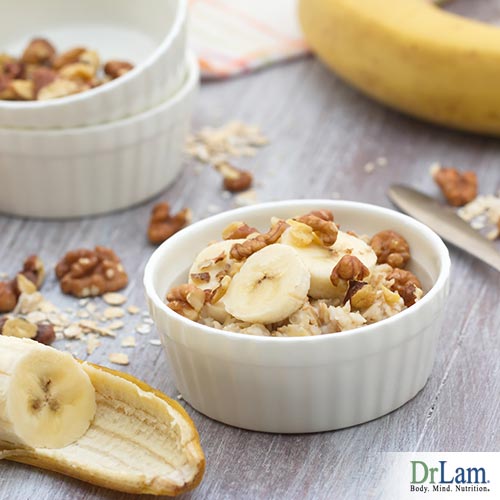 Acid reflux can be painful and inconvenient. Ignoring the symptoms of acid reflux could be dangerous, and may lead to complications. Fortunately, there are many foods for acid reflux that may help alleviate the symptoms. Acid reflux, if left unchecked, can cause the body to go into a state of stress. Stress is one of the main causes of Adrenal Fatigue Syndrome (AFS). AFS is the result of an overworked, prolonged NeuroEndoMetabolic (NEM) stress response. This guide introduces you to the foods generally deemed safe for those with acid reflux, and those you need to avoid and help you to prevent further painful heartburn incidents.
Acid reflux can be painful and inconvenient. Ignoring the symptoms of acid reflux could be dangerous, and may lead to complications. Fortunately, there are many foods for acid reflux that may help alleviate the symptoms. Acid reflux, if left unchecked, can cause the body to go into a state of stress. Stress is one of the main causes of Adrenal Fatigue Syndrome (AFS). AFS is the result of an overworked, prolonged NeuroEndoMetabolic (NEM) stress response. This guide introduces you to the foods generally deemed safe for those with acid reflux, and those you need to avoid and help you to prevent further painful heartburn incidents.
The lower esophageal sphincter (LES) is a muscle situated at the entrance of the stomach. This muscle opens and closes to allow food through the esophagus and into the stomach. Acid reflux arises when your LES either doesn't close all the way or opens when it is not meant to. When this occurs, acid produced in your stomach can rise up and enter your esophagus, resulting in “heartburn”, regurgitation, and other painful, possibly dangerous symptoms.
Acid reflux is caused by several factors. Most are associated with diet and lifestyle choices. This implies that lifestyle changes could in many circumstances lead to a reduction in acid reflux frequency.
Several of the key causes of acid reflux are:
It is important to take the necessary action in order to alleviate acid reflux. Leaving acid reflux unchecked may lead to conditions that are more severe, such as esophageal cancer, an overactive immune system, and constant stress. The latter may cause the adrenal glands to become overactive, possibly resulting in AFS. Fortunately, there are many foods for acid reflux that may help prevent, reduce, or reverse acid reflux altogether.
Although these foods may be of help for some people that suffer from acid reflux, they may not work for all. When searching for healthy ways alleviate acid reflux, keep your allergies and the advice of your healthcare practitioner in mind. By reducing acid reflux, you reduce the stress on your body, thereby reducing the burden on your NEM stress response. This is beneficial for adrenal recovery.
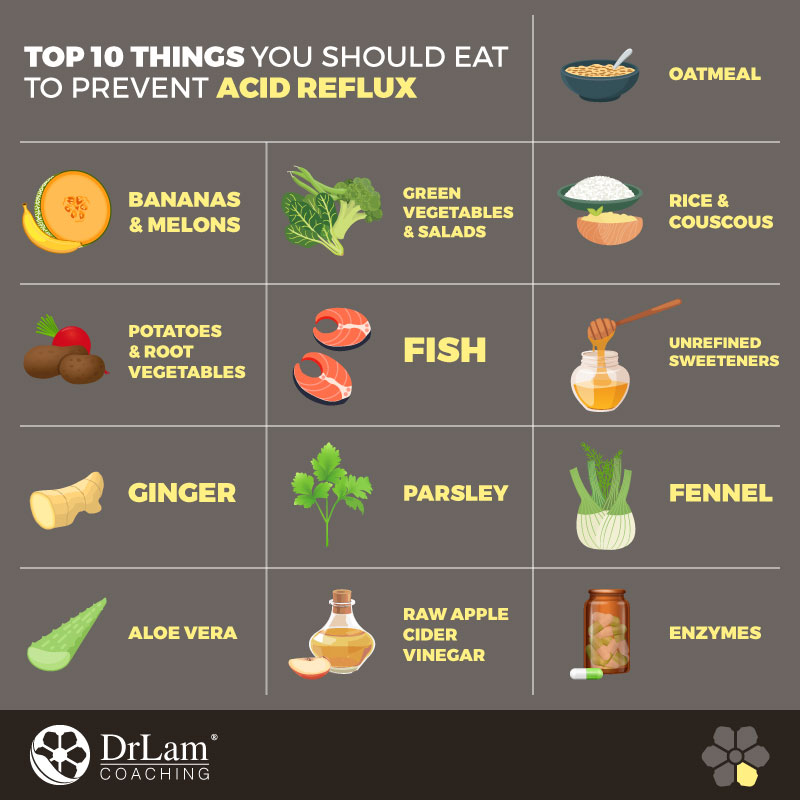
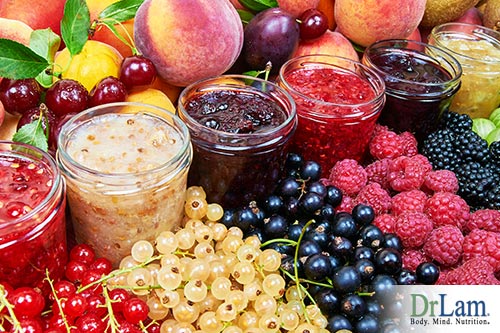 Unrefined Sweeteners - Sweeteners such as maple syrup, honey, fruit jams, and compotes should be used sparingly as a replacement for refined sugars.
Unrefined Sweeteners - Sweeteners such as maple syrup, honey, fruit jams, and compotes should be used sparingly as a replacement for refined sugars.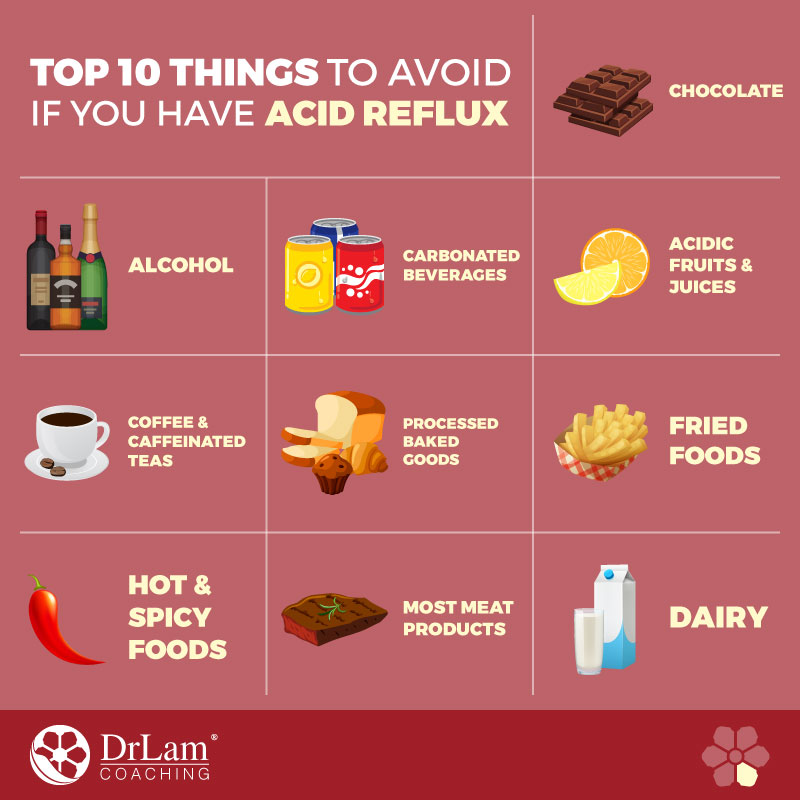
 Processed Baked Goods - Baked goods are often high in oils and refined sugars, and may have other acid reflux triggers like cocoa. Avoiding processed baked goods, refined sugars, and enriched flour may be helpful in avoiding acid reflux flare-ups.
Processed Baked Goods - Baked goods are often high in oils and refined sugars, and may have other acid reflux triggers like cocoa. Avoiding processed baked goods, refined sugars, and enriched flour may be helpful in avoiding acid reflux flare-ups.Handling emotional and environmental stress is important for survival. The NeuroEndoMetabolic (NEM) stress response is the body’s way of handling these situations. The NEM system is comprised of several parts including the hypothalamus and the pituitary and adrenal glands.
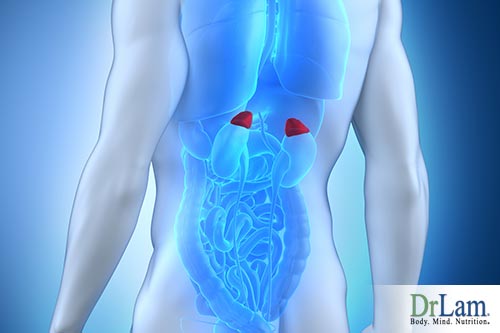 The adrenal glands are perhaps the most impacted organs of the NEM system when constant stress is present. The adrenal glands are responsible for creating and regulating many of the hormones associated with the “fight or flight” response to stress. These hormones include adrenaline, cortisol, and others.
The adrenal glands are perhaps the most impacted organs of the NEM system when constant stress is present. The adrenal glands are responsible for creating and regulating many of the hormones associated with the “fight or flight” response to stress. These hormones include adrenaline, cortisol, and others.
AFS is brought on by constant and prolonged exposure to stress, which causes a constant production of stress hormones. This constant production of stress hormones, along with other factors, can wear out the adrenal glands in time, which may lead to chronic fatigue and several other issues. It is important to take measures to avoid AFS because it is likely that most people will experience at least the early stages of it at some point in their lives.
Acid reflux makes digestion very challenging. The human body is already faced with a myriad of stress factors on a daily basis. Stress can lead to many diseases, and chronic stress can be detrimental to an individuals health. Acid reflux increases the stress the body faces on a daily basis and causes the NEM stress response system to work hard to alleviate the pain associated with heartburn. Not only can eating the right foods for acid reflux prevention alleviate acid reflux, it can lower the stress the body faces, decrease the work the NEM system has to go through, and thusly may even prevent the effects of AFS.
It is important to keep in mind that this guide of foods for acid reflux prevention, may not be enough to alleviate acid reflux. Furthermore, it is important to remember that acid reflux is not the only cause of AFS. It is but one of many stress factors that may lead to this condition.
AFS is typically brought on by constant, unrelenting stress. Stress comes from both our external environment and our internal circumstances. Acid reflux may not only cause pain from heartburn, bloating, and constant unprompted regurgitation, but may also contribute to constant, regular stress. Not only does acid reflux stress the body itself due to acid flare-ups, it can cause emotional stress as well. Once enjoyable activities like eating out, or going to the bar with friends and family may become unenjoyable events due to the constant dread of the next flare-up.
This constant unrelenting stress is just the environment that an overactive NEM stress response system needs for the onslaught of AFS. Using these foods for acid reflux prevention may be the help your body needs to avoid excess stress.
Acid reflux is far from the only potential cause of AFS. Any stress factor that activates the bodies NEM stress response system may eventually result in AFS. Eliminating one stress factor, may not necessarily prevent AFS altogether. However, any steps that alleviate the stress the body has to deal with is one step in the right direction, and one step closer to preventing AFS.
 Using this guide of foods for acid reflux prevention may be a very good way to reverse acid reflux, promote a healthy NEM system, and prevent AFS. Foods high in fats and acids cause stress on the digestive system. Choosing the right ones can help you avoid a wide range of health disorders, including acid reflux and AFS. Acid reflux, however, is not the only common stress factor that may lead to AFS. There are a wide range of stress factors that contribute to the condition. Avoiding excessive acid flare-ups are but one factor in avoiding AFS.
Using this guide of foods for acid reflux prevention may be a very good way to reverse acid reflux, promote a healthy NEM system, and prevent AFS. Foods high in fats and acids cause stress on the digestive system. Choosing the right ones can help you avoid a wide range of health disorders, including acid reflux and AFS. Acid reflux, however, is not the only common stress factor that may lead to AFS. There are a wide range of stress factors that contribute to the condition. Avoiding excessive acid flare-ups are but one factor in avoiding AFS.
© Copyright 2018 Michael Lam, M.D. All Rights Reserved.
For those afflicted with it, there are many foods for acid reflux that could help. Acid reflux can be an incredibly painful, stressful and inconvenient condition. Fortunately for those afflicted with the illness, there are easy solutions that only involve small changes to your diet.
